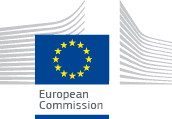Table of contents
Description
Context
Sustainable economic growth and a just transition require resilient, well-functioning, and inclusive financial systems that can redirect financial flows to sustainable investments that benefit everyone. Greater inclusion of women, poor households, and micro-, small and medium-sized enterprises (MSMEs) in the financial system is crucial for the benefits of growth to be shared. Integrating sustainability in financing decisions and risk management processes in the financial sector promotes a sustainable economic transformation in line with the UN Sustainable Development Goals (SDGs) and the global climate agenda.
In developing countries and emerging economies where access to finance is often limited, individuals, households, and MSMEs may not have the formal tools to conduct transactions and manage their financial lives. Without credit or savings accounts, it is difficult for MSMEs to operate successfully and boost the economy and labour market. Digitalising the financial sector can open doors to financial products and services, but also poses risks for consumers and the financial system.
Meanwhile, a large financing gap is standing in the way of achieving the SDGs and global climate targets. Growing risks and economic crises, such as pandemics, climate change, and natural disasters, all threaten the resilience and stability of financial systems and reconstruction of national economies in many developing countries and emerging economies.
Objective
Developing efficient and responsible financial systems is key to sustainable growth, economic transformation, and poverty reduction in developing countries and emerging economies. The Financial Systems Development, Sustainable Finance, and Investment Sector Project supports the Federal Ministry for Economic Cooperation and Development (BMZ) in the transformation to responsible, efficient, and inclusive financial systems in GIZ partner countries.
Approach
The Sector Project currently focuses on the following key areas:
-
Financial Inclusion and Digital Transformation:
The work of the Financial Inclusion Team focusses on the inclusivity of the financial sector.
Although digital financial services have increased opportunities for millions of people around the globe, there are still segments of the population that are not sufficiently included. In line with policies such as the BMZ’s Feminist Development Policy, our team analyses the barriers that restrict women’s access to (digital) financial services. We also advise BMZ on the opportunities and risks presented by innovative digital finance solutions. While digitalisation holds enormous potential to advance financial inclusion in innovative ways, a persistent digital gender divide prevents many women from reaping these opportunities. At a global level, we support BMZ in their engagement as part of the G20 Global Partnership for Financial Inclusion (GPFI).
In addition, we ensure our work is closely aligned with the work of our partners, such as the Consultative Group to Assist the Poor (CGAP), which is continuously expanding the frontier of financial inclusion. -
Sustainable Finance
The work of the Sustainable Finance team focuses on sustainability in the financial sectors of GIZ partner countries and the mobilisation of private capital for a sustainable economic transformation in line with the goals of the 2030 Agenda, the Paris Climate Agreement, and the Global Biodiversity Framework. This includes sustainable finance policy measures such as taxonomies, disclosure standards, strategies, standards for green financial products, the incorporation of sustainability in supervision and regulation, and the transformation of the private sector through strategies, the consideration of sustainability in risk management, and the development of sustainable financial products.
The team advises BMZ and pilots capacity building, for example, through the development of e-learning courses, and supports the implementation of sustainable finance reforms in partner countries, for example, with taxonomies. The Sustainable Finance team works closely with the Sustainable Economic Transformation and Sustainable Finance Global Project. -
Risk Finance and Insurance
The work of the Risk Finance and Insurance team focuses on protecting vulnerable population groups from climate and disaster risks. The team provides strategic advice to BMZ on the use of inclusive risk finance and insurance solutions in GIZ partner countries – and throughout areas of German development cooperation – to strengthen the resilience of societies. This includes solutions for risk assessment, minimisation, retention, and transfer in the form of financial instruments embedded across the financial sector and at different levels of society. The team focuses on political developments and relevant agendas, pursues inter- and transdisciplinary approaches, and involves local financial markets in its work to ensure sustainable solutions.
The project is funded by the German Federal Ministry for Economic Cooperation and Development (BMZ).
Target group
The Sector Project provides technical and conceptual advice to BMZ on national and international processes.
Status
The project has been commissioned from 2021 to 2024.

Contact:
Hayder Al-Bagdadi
Head, Financial Systems Development, Sustainable Finance and Investment Sector Project
hayder.al-bagdadi@giz.de

Directorate-General for International Partnerships

International Finance Corporation

Organisation for Economic Co-operation and Development

London School of Economics and Political Science - Grantham Research Institute
Useful links
Find the Sector Project on the website of the GIZ.
- Website of the Principles for Responsible Banking Academy
- E-Learning Introduction to Sustainable Finance
- E-Learning Introduction to Sustainable Finance Taxonomies




